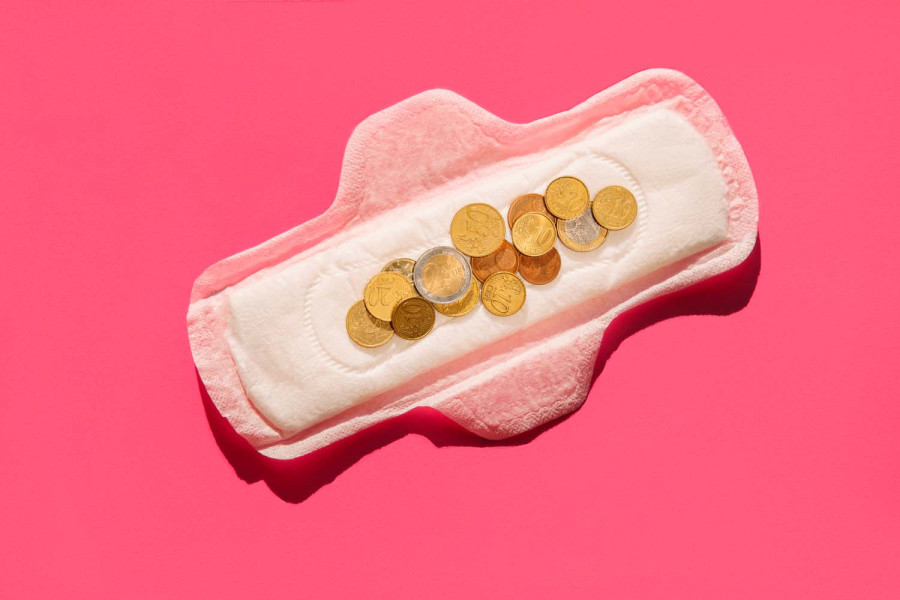Editorial
Unsanitary taxes
Taxes on menstrual products violate the rights to reproductive health and safe motherhood.
Sanitary pads, as essential as any other medicine, can cost a fortune to menstruating individuals in Nepal. Many need more than a packet of pads during their monthly cycle, but it is hard to find a pack for less than Rs50. Young girls who depend on their parents for money have to cut expenses on other things to save for menstrual pads. Many others who cannot afford pads rely on old saris, towels and napkins. While such clothing is eco-friendly and still viable, they are not as reliable and workable, especially when attending schools, colleges and the workplace. Cotton sanitary napkins not only absorb more blood, they can also be carried easily.
Sanitary pads have thus been more of a luxury than ‘essential’ goods in Nepal. Rather than making them accessible, for nearly a decade, successive governments have been levying hefty taxes on them—15 percent customs duty, 13 percent Value Added Tax (VAT), and an additional 1.5 percent VAT on customs duty. In fiscal year 2019-20 alone, Nepal generated revenue worth Rs645.72 million from sanitary napkins. Amid growing pressure from women’s rights activists, it was only in the budget for fiscal year 2022-23 that customs duty on finished sanitary pads were cut from 15 percent to 1.5 percent, and on raw materials from 15 percent to 1 percent. Still, as per the Policy and Operation Division at the Department of Customs, imported sanitary pads attract a tax of 18 percent—5 percent customs duty and 13 percent VAT. This also applies to imported raw materials for domestic production of pads.
But recently, the Supreme Court ordered the removal of all forms of taxes on sanitary pads after four long years of legal battle initiated by two law students. (According to customs officials, it is unclear whether imported products have been exempt from both VAT and customs duties as the full text of the mandamus is yet to be released.) This is welcome news not only for menstruating individuals and those advocating for their rights, but also a landmark decision in ensuring menstrual equity. The court order will make pads cheaper by 18 percent, meaning the packet you buy for Rs60 will cost you around Rs50 after tax removal. It will also significantly boost domestic production and increase exports of pads.
Though late, the Supreme Court decision is commendable and aligns with many countries’ policies that ensure sanitary pads remain within menstruating individuals’ reach. India scrapped the 12 percent tax imposed on pads in July 2018. The Maldives followed suit, freeing all menstrual products from tax. Columbia even labelled taxing menstrual products as ‘unconstitutional’ and nullified its 5 percent tax. Scotland made an exemplary move by passing a bill in 2020 that ensured menstrual products came free of cost.
Women’s rights activists also question: Why should menstrual products be taxed at all when other essential medicines and contraceptives are exempt from VAT? Rightly so. They even contend that the government can afford to waive the revenue from these items. These claims have merit in a country where poor menstrual hygiene not only leads to school dropouts for many young girls but also puts their health at risk and diminishes their productivity. Further, any kind of tax on imported sanitary pads will not help, as it is menstruating individuals’ right to choose the products they want. Taxation on menstrual products goes against the right to reproductive health and safe motherhood. Policymakers must show sensitivity while designing policies for menstruating individuals. Something as basic as sanitary pads should not be luxury products.




 23.27°C Kathmandu
23.27°C Kathmandu














